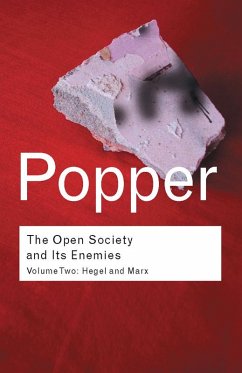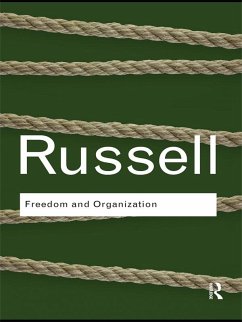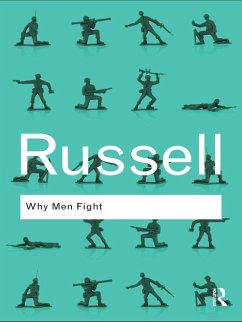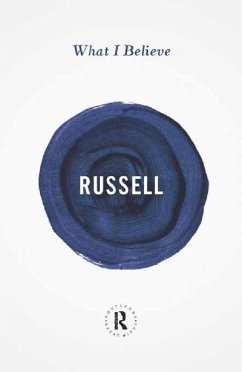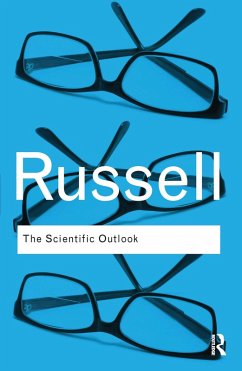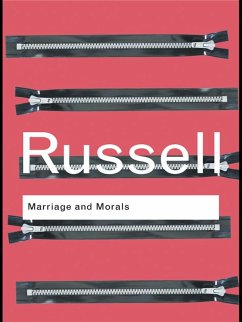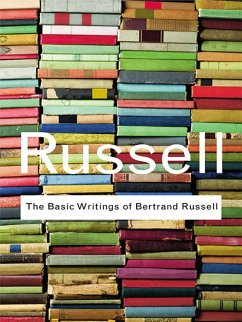
Europe: A Philosophical History, Part 2 (eBook, PDF)
Beyond Modernity
Versandkostenfrei!
Sofort per Download lieferbar
38,95 €
inkl. MwSt.
Weitere Ausgaben:

PAYBACK Punkte
19 °P sammeln!
Europe is inseparable from its history. That history has been extensively studied in terms of its political history, its economic history, its religious history, its literary and cultural history, and so on. Could there be a distinctively philosophical history of Europe? Not a history of philosophy in Europe, but a history of Europe that focuses on what, in its history and identity, ties it to philosophy.In the two volumes of Europe: A Philosophical History - The Promise of Modernity and Beyond Modernity - Simon Glendinning takes up this question, telling the story of Europe's history as a phi...
Europe is inseparable from its history. That history has been extensively studied in terms of its political history, its economic history, its religious history, its literary and cultural history, and so on. Could there be a distinctively philosophical history of Europe? Not a history of philosophy in Europe, but a history of Europe that focuses on what, in its history and identity, ties it to philosophy.
In the two volumes of Europe: A Philosophical History - The Promise of Modernity and Beyond Modernity - Simon Glendinning takes up this question, telling the story of Europe's history as a philosophical history.
In the wake of two world wars of European origin, Europe's modern promise of universal peace, freedom and well-being for all humanity lay in ruins. In Part 2, Beyond Modernity, Glendinning picks up the story of this promise after the Second World War. Taking in Isaiah Berlin's defence of a pluralist ideal, Francis Fukuyama's vision of a new 'end of history' in liberal democracy, and Jacques Derrida's critique of the very idea of an end of history, Glendinning invites us to affirm a new philosophical-historical self-understanding: not the history of the rational animal on the way to its final end, with Europe at the head, but a history of the unpredictably self-transforming animal without a final end. In this context, Glendinning argues, Europe remains promising, its cosmopolitan heritage opening a future beyond its exhausted modernity.
Part 1: The Promise of Modernity is available now from Routledge. ISBN 9781032015804
In the two volumes of Europe: A Philosophical History - The Promise of Modernity and Beyond Modernity - Simon Glendinning takes up this question, telling the story of Europe's history as a philosophical history.
In the wake of two world wars of European origin, Europe's modern promise of universal peace, freedom and well-being for all humanity lay in ruins. In Part 2, Beyond Modernity, Glendinning picks up the story of this promise after the Second World War. Taking in Isaiah Berlin's defence of a pluralist ideal, Francis Fukuyama's vision of a new 'end of history' in liberal democracy, and Jacques Derrida's critique of the very idea of an end of history, Glendinning invites us to affirm a new philosophical-historical self-understanding: not the history of the rational animal on the way to its final end, with Europe at the head, but a history of the unpredictably self-transforming animal without a final end. In this context, Glendinning argues, Europe remains promising, its cosmopolitan heritage opening a future beyond its exhausted modernity.
Part 1: The Promise of Modernity is available now from Routledge. ISBN 9781032015804
Dieser Download kann aus rechtlichen Gründen nur mit Rechnungsadresse in A, B, BG, CY, CZ, D, DK, EW, E, FIN, F, GR, HR, H, IRL, I, LT, L, LR, M, NL, PL, P, R, S, SLO, SK ausgeliefert werden.





